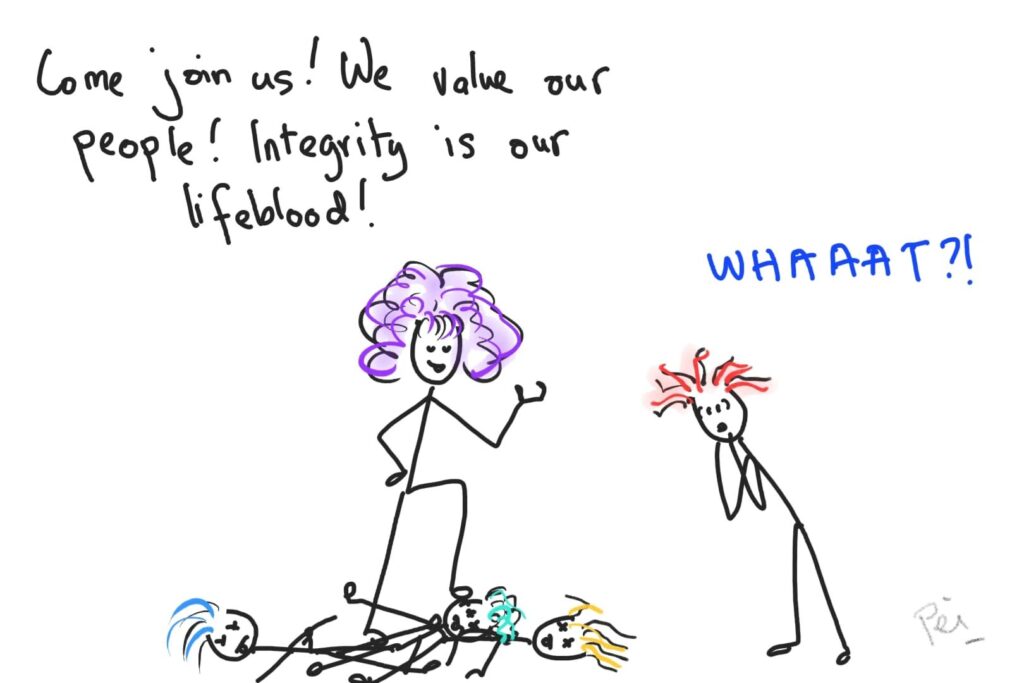“You can’t compensate for poor management and a non-existent culture with perks, and you can’t meditate away a crap CEO. 😣
So… How can a candidate spot the difference at interview? What questions can they ask?” Mark Rickaby wrote.
In my opinion, I don’t believe that’s really possible. 🙅🏻♀️
Just like the dating scene – no matter how many dates you go on, if the other party intends to hide their true colours – you won’t see it until the ring is on the finger and you have little sprogs in the picture. 😐
Sad but true.
I’d like to see a world where, instead of ‘probation’, we have a ‘project’ that lasts 2-3 months where there is a clear objective and the candidate can evaluate the employer and vice versa.
Of course, this is a PAID gig, but there is an expectation that the project will end, after which a decision can be made as to whether to proceed with a more permanent arrangement or not.
It’s a bit like a Discovery for a #Salesforce implementation.
We need it to understand the ‘landscape’ – technical, business, process and more importantly, the political aspect of the organisation.
ALL of it will affect the implementation, and so this small bit of work will allow both parties the opportunity to evaluate if further collaboration is a good idea.
Going back to Mark‘s question – if doing a short project to evaluate reciprocal “fit” for both parties isn’t possible, then here are some questions that may help:
1. If I were to connect with your ex-employees on LInkedIn, what might they say about your company culture?
2. If I were to have a drink with one of your employees, and they’ve had a few rounds, what would they say about your culture? What would their candid opinion be of the leadership team? Would they feel that communication is transparent? Would they say they feel valued? How long would they say they would stay in your company?
3. How do your employees view your HR department? Their direct manager? The leadership team? Friend or foe?
4. What do your exit interviews tell you about why employees leave your company? Do you even have exit interviews? What are their candid responses?
5. Would you be able to provide references from clients that have been happy with your service? Can I reach out and talk to them off the record? If I did – what would they say about the team that they’ve worked with? About you as a manager? About your organisation as a whole?
6. Can I speak to the clients that you’ve ‘fired’ or no longer work for and ask them the same questions as above?
7. Can I speak to the clients who fired you? What might they say? (Also – how many of them are there?)
I can think of so many more, but I seriously doubt that you’d get candid answers to the questions above, which would be incredibly illuminating.
What do you think?
#OnThePeiroll

